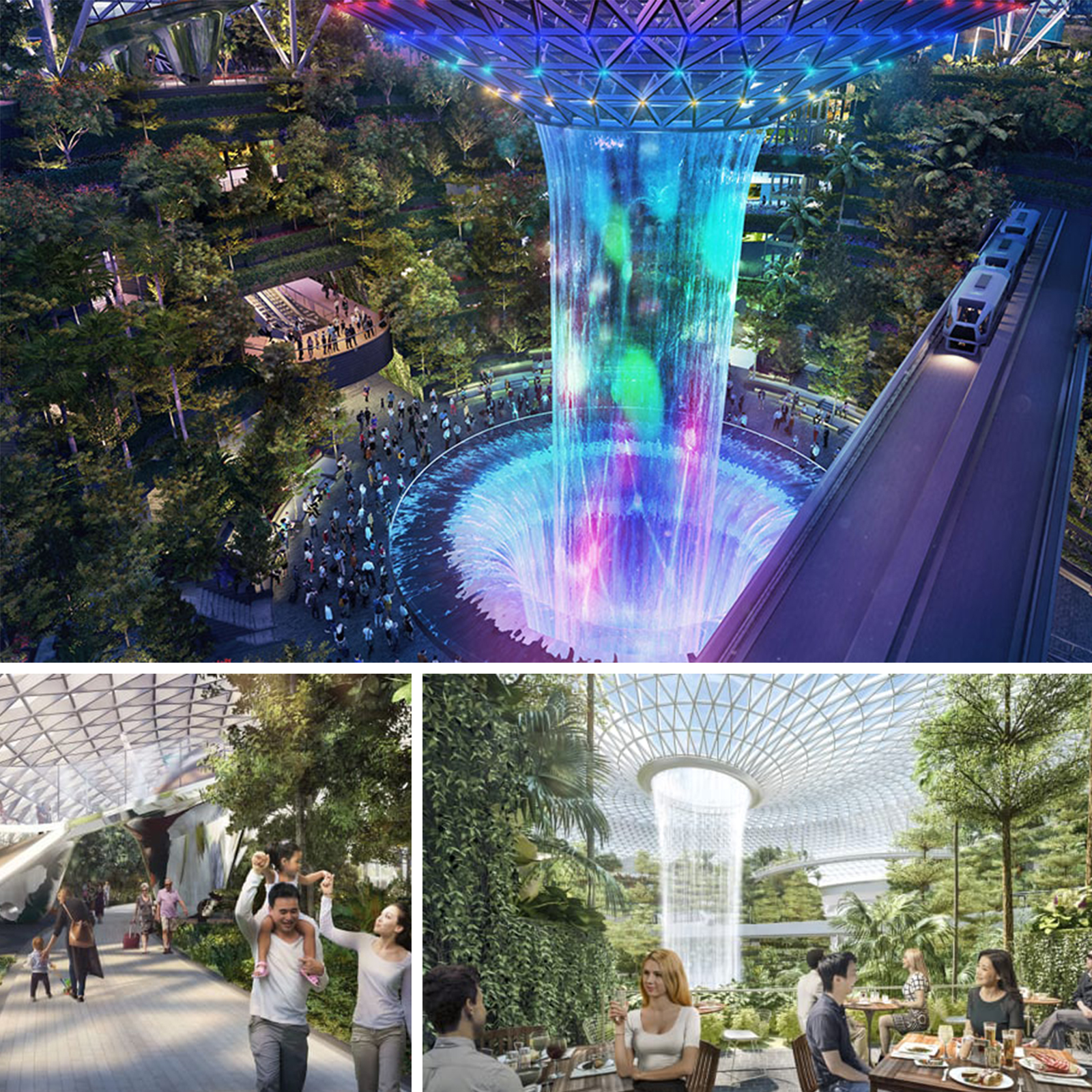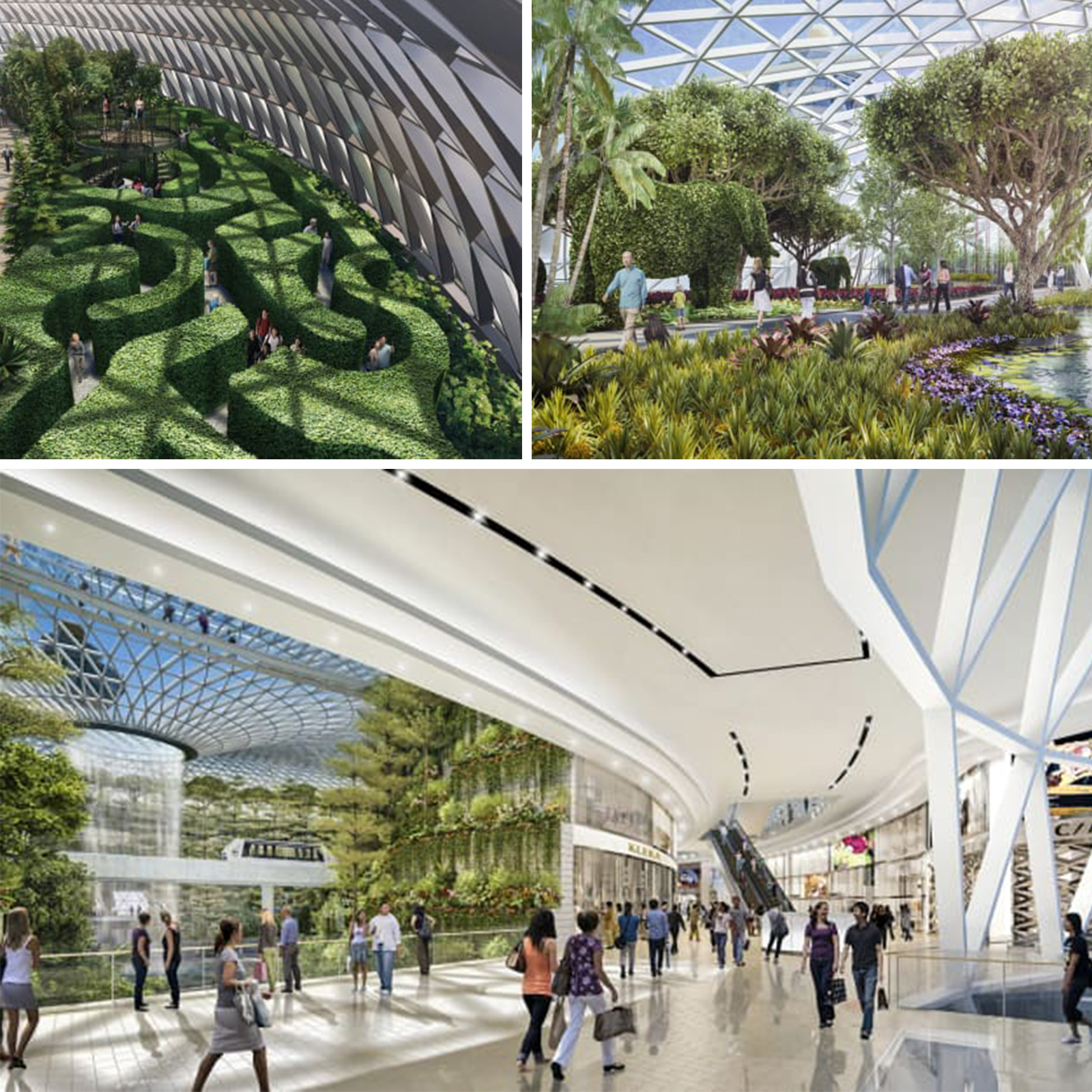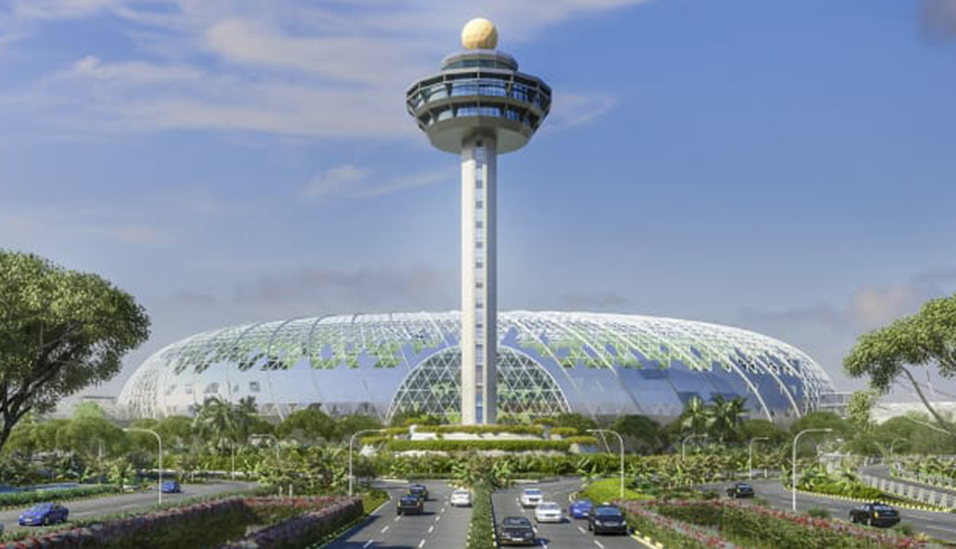A First Look at Changi Airport’s New $1.7bn ‘Jewel’
With the emergence of Dubai and Abu Dhabi as global transport hubs connecting east and west, Changi airport has once again reinvented itself to entice travellers with a new $1.7 billion "magical garden" named Jewel.
The airport – voted the world's best for six years in a row, is already renowned for its pleasant human touches – such as butterfly gardens, spas, cinemas and rooftop pools.
Changi's latest endeavour "Jewel" is marked to be a destination in its own right.
Jewel Changi Airport development chief executive Hung Jean told The Urban Developer that Jewel would act as a strong tourism product and create a multi-dimensional lifestyle destination to enhance Singapore’s appeal to travellers.
“We are observing a trend where more and more travellers are spending less time in major cities and are instead, exploring less discovered destinations to gain meaningful experiences beyond leisurely vacations,” Hung said.
“This makes the role of air hubs even more important in their travel journeys as these savvy travellers prefer to book their own flights and choose the airports they wish to transfer to and transit in.”
Visitors can immerse themselves in the beauty of
--Jewel Changi Airport Development CEO Hung Jean
nature within this idyllic valley of verdant landscaping and waterfall, or take a hike up the walking trails
under all weather conditions.

Architect Moshe Safdie, who designed Singapore’s Marina Bay Sands along with landscape architect Peter Walker & Partners are responsible for Singapore's latest landscaped urban sanctuary.
The unique mixed-use development, combining rainforest and retail, will span 134,000 sq m and will be encased by a stunning glass-and-steel dome.
“A key vision for Jewel Changi is to be a one-of-its-kind, multi-dimensional lifestyle destination that can enhance Singapore’s appeal as a tourist destination and for travellers to choose Changi Airport as a stopover destination,” Hung said.
“The tourism mindshare that Jewel aims to capture will significantly augment Changi Airport’s status as a leading international air hub, drawing international travellers to Changi Airport and Singapore.”
In a nod to Singapore's reputation as a garden city, the development will boast a 40m-high indoor waterfall pouring 10,000 gallons per minute and a five-storey garden with 2,500 trees and 100,000 shrubs from countries such as Brazil, Australia, Thailand and the United States.
While the gardens at the Jewel Changi will dominate the five higher floors, retail and airport facilities will take up five floors below ground level.
Passengers will be greeted at the Jewel Changi Airport = by some 300 boutiques, bars and restaurants across 90,000sq m, as well as a 130-room hotel.
Sky nets, canopy mazes, foggy bowls and discovery slides – which have been specifically designed by world-renowned consultants, will act as inventive new attractions to entertain passengers in transit.
Related: Singapore's 'Vertical Forest' Marina One on Track for Completion
Jewel will include unique play
--Jewel Changi Airport Development CEO Hung Jean
attractions and a shopping and dining experience of world-class standards.

Jewel's roof is comprised of 9,600 pieces of glass specially made in the United States, each weighing up to 300 kilograms and held together by 18,000 steel beams across 6,000 steel nodes.
The installation has been a complex undertaking due to the fact that no single piece has the same dimensions and specifications.
Construction workers at the Changi Airports Jewel have benefited from the use of QR code technology to ensure each unique piece of glass finds its correct position on the facade.
The panels, made of triple Low-E glass, have been designed with a 16mm air gap to restrict noise from aircraft while also reducing heat.
Unsurprisingly, one of the more critical engineering challenges at the new part of Changi Airport has been to specify glass that prevents glare from affecting air traffic controllers in the adjoining control tower.
An extensive study over two years allowed engineers to select glass best suited to the location and weather conditions.

“Jewel’s unique location in the heart of Changi Airport adds to the complexity of construction as we are located in a ‘live’ airport environment and proper coordination has to be done to prevent disruption to airport operations,” Hung said.
“We also need to ensure that the existing airport buildings are not affected by the construction of Jewel.”
“For example, the deep excavation for Jewel’s five basement levels as well as the ramps leading to Jewel meant that the adjoining buildings needed to be closely monitored for any form of movement at all times.”
“We also have to ensure that the airport’s existing infrastructure, such as telecommunication cables, water pipes and power lines, are not damaged during construction.”
Jewel at Changi Airport will be connected directly to Terminal 1 and will be linked to Terminals 2 and 3 via air-conditioned bridges with travelators.
A monorail train connecting two of the terminals will pass directly through the middle of the site.
Changi Airport's latest asset is envisaged to be a world-class lifestyle destination that will be technological statement for Singapore amidst intensifying competition on the global airport landscape.
The sizeable joint venture between Changi Airport Group and CapitaLand is now marked for completion early-2019.














